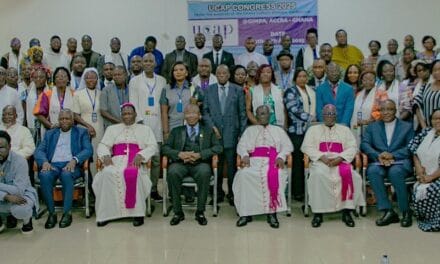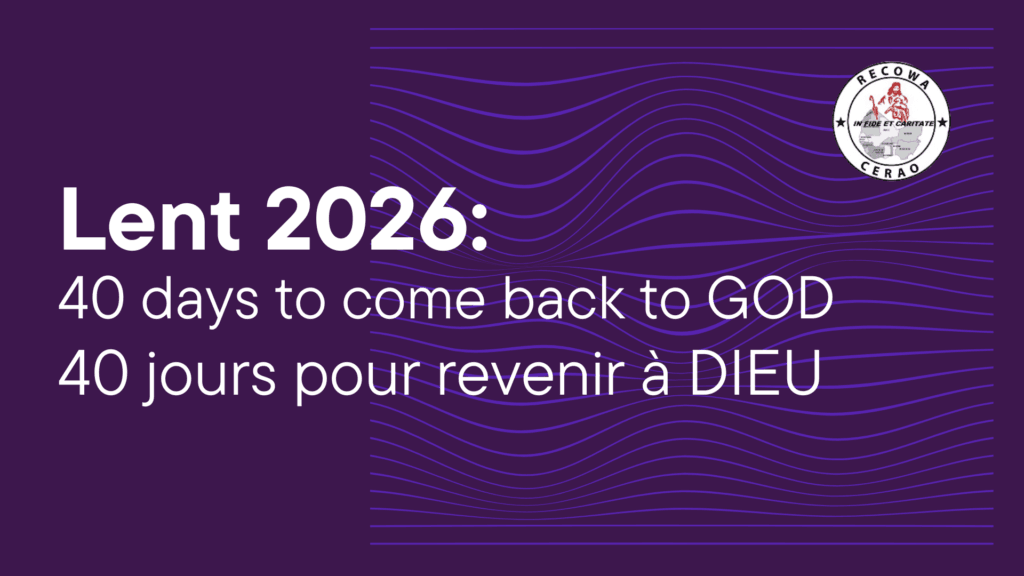A Catholic Archbishop in Nigeria who was the immediate past President of CERAO-RECOWA, an umbrella body of all the Catholic Bishops in the Western subregion of Africa, has declared that the Holy Week is an Invitation “to move from sin to grace, fear to faith”:
As the Lenten Season draws to a close, ushering in the Holy Week and Easter, Archbishop Ignatius Ayau Kaigama of Nigeria’s Abuja Catholic Archdiocese has invited the people of God under his pastoral care to engage in a “deeper” personal reflection and “true repentance”.
In his Sunday, April 6 homily, Archbishop Kaigama encouraged the people to “encounter more intimately Jesus, the face of God’s mercy.”
“As the Lenten Season draws to a close, we are called to a personal, deeper, and proper examination of conscience and true repentance,” he said during Holy Mass he presided over at St. Jude Zuba Catholic Church.
He added, “By next week we begin Holy Week, and as the Lord calls us to move from sin to grace and from fear to faith, let us encounter Jesus more intimately, the face of God’s mercy, who does not condemn but calls us to a new life in holiness.”
Reflecting on the Readings of the Fifth Sunday of Lent, including John’s unique account of the woman caught in adultery, the Nigerian Catholic Archbishop noted that God gives “a fresh start”.
“God wants us to know that He forgives, He renews, and He calls us forward,” he said, and added, “God forgives us in Christ and has given us new life.”
He went on to appeal, “Let us walk as children of light, maintaining the holiness of life.”
By absolving the woman caught in adultery, ushering her into a new life that avoids sin and focuses on doing good, Jesus taught that “justice is about redemption, not retribution”, Archbishop Kaigama said.
In the action of Jesus Christ, the Nigerian Church leader said, God condemns the sin, and not the sinner, and “grace demands change.”
“Grace triumphs over judgement,” Archbishop Kaigama emphasized, and went on to explain, “Each of us has certain spiritual weaknesses, like tending to be impatient, critical of others, proud, self-centred, and the like. We should seek the forgiveness of Jesus through the sacrament of reconciliation or pardon.”
He noted that during the Sacrament of Confession, “God lets us go away even with the horrible sins we have committed, as long as we are truly sorry. He frees us unconditionally from the destructive presence of sin in our hearts.”
According to Archbishop Kaigama, some people are reluctant to use the sacrament of reconciliation because they feel they have nothing to confess.
However, he observed, many sins of commission and omission are committed every day. “Sometimes, like the Pharisee who went to pray in the temple, we focus on the sins of others,” he said.
The Nigerian Catholic Church leader, who started his Episcopal Ministry in April 1995 as Bishop of Nigeria’s Catholic Diocese of Jalingo invited the people of God to remember that “Jesus does not write our sins on rock to remain forever, but on dust, to be blown away by the mercy of God.”
“It is so beautiful how God, rich in mercy, can wash us clean and make us whole if we make ourselves available,” he said at St. Jude Zuba Catholic Church, where he conferred the Sacrament of Confirmation to some 400 candidates.
Diocese Recovered from Severe Scarcity of Priests following Genocide
Addressing the Confirmation candidates, Archbishop Kaigama said, “May the grace of this sacrament empower you to live as true disciples, resist sin, and bear witness to Christ in your daily lives.
- CATHOLIC ARCHBISHOP IN GHANA HAILS POPE LEO XIV AS GOD’S GIFT - 23 mai 2025
- POPE LEO XIV TO APPROVE CANONIZATIONS - 22 mai 2025
- THE EVOLUTION OF PAPAL TRANSPORTATION - 20 mai 2025







